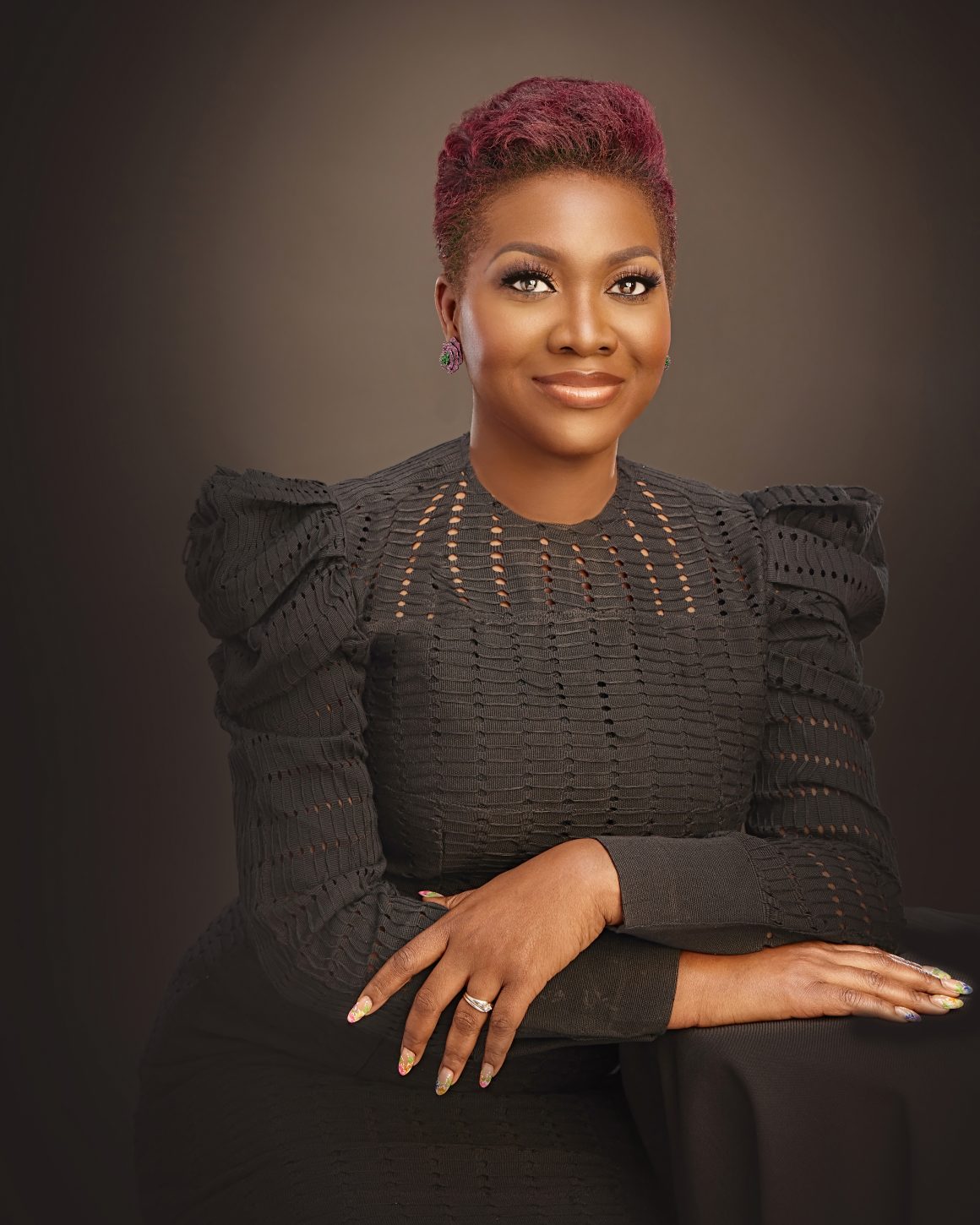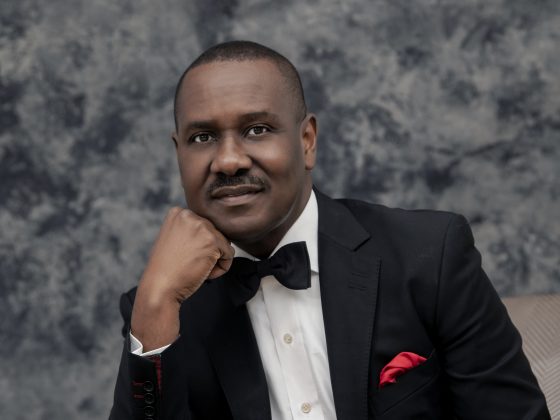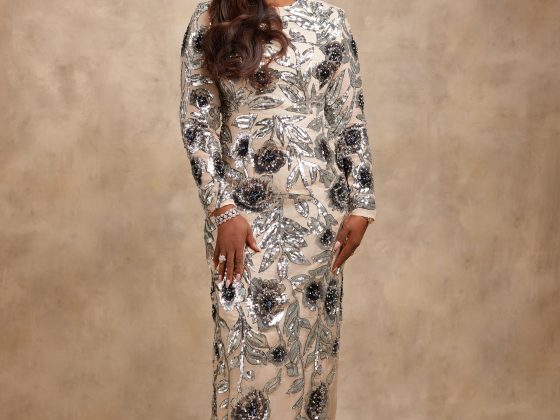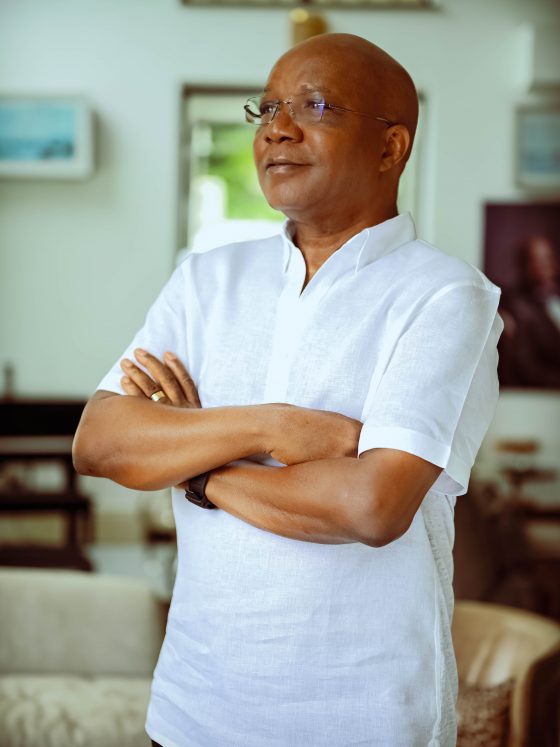Despite some improvements in gender equality in the society we live in today, men still dominate specific industries, like the automobile Industry. There is no secret that women are a minority in this space, but one woman who is breaking stereotypes and shattering ceilings in that space regardless is Mary Ojulari. She is currently the managing director of Weststar Associates, the sole authorised general distributor for Mercedes-Benz passenger cars and commercial vehicles in Nigeria, and she coordinates Daimler AG’s (one of the world’s biggest automotive companies) business activities here in Nigeria.
Mary has been in the automotive industry for over seven years, and in this time, she has made a mark and solidified her presence there. In this interview, she shares her inspiring journey in a male-dominated industry, hoping to encourage more women into auto and leadership roles.
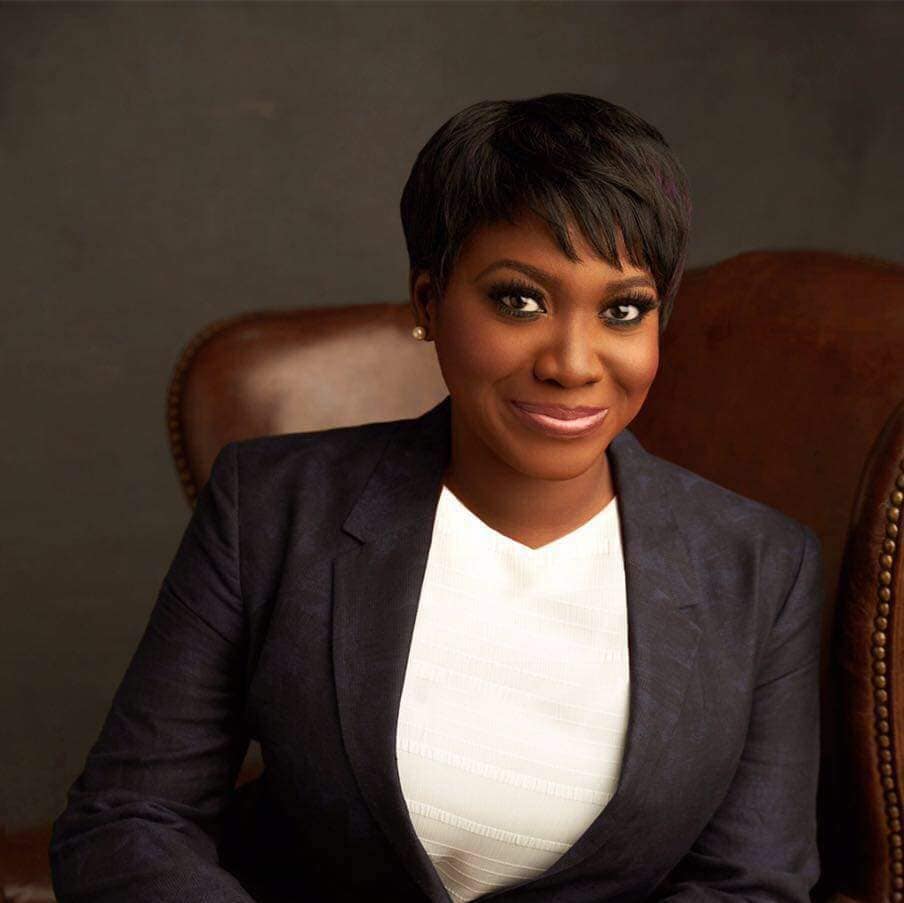
You have significantly excelled as an entrepreneur and a woman in business; tell us what the journey has been so far. Take us through your beginnings to date.
My name is Aderinola Mary Ojulari, and I am the managing director at Weststar Associates Limited. Weststar is the sole authorised general distributor for Mercedes-Benz in Nigeria.
Regarding my journey, I started my audit career over 20 years ago at KPMG UK. After three years of training, I moved to Bass Group PLC, one of the largest hospitality companies in the UK, and then to Whitbread PLC UK, which is also one of the largest companies in the hospitality sector in the UK. At both companies, I worked as a management accountant, where I analysed financial data to assist business managers with making financial decisions for the business.
In 2006, I joined the British Broadcasting Company (BBC) as an analyst. At the BBC, I was exposed to working in different divisions and sharing best practices across divisions. In 2009, I was promoted to business and corporate planning manager in the corporate finance division. This role enabled me to work in all eighteen divisions of the BBC. My experience at the BBC was instrumental to my career growth as I learned the importance of stakeholder management, negotiation and influencing leadership, and crisis management. I relocated to Nigeria in 2022 and joined CNBC and Forbes Africa, where I worked as the chief financial officer for West Africa for five years. In addition, I was responsible for the administration and human resources divisions for West Africa before joining Weststar in 2017. Shortly after joining Weststar, the deputy managing director position was created for me in 2018, and in the same year, I joined the board of the European Business Organisation (EuroCham).
In 2021, I assumed the role of president of the EuroCham in Nigeria. During my tenure as president, I collaborated closely with stakeholders and focused on executing EuroCham’s objectives.
So, the British Broadcasting Company (BBC), CNBC, and Forbes Africa. What was your experience working in the media industry, even though it was mostly HR and financial roles?
The media industry is very fast-paced and demanding, which enabled me to thrive. Although I started off in the finance division, it was a very useful experience to take on the HR roles as well at CNBC and Forbes Africa. Working in this industry requires a combination of industry knowledge, analytical skills, attention to detail, and the ability to navigate the unique challenges and demands of the media landscape. But all in all, I had an amazing experience.
What inspired your move back to Nigeria? Did you ever think you were better off here than abroad, and why?
The decision of whether to move back to Nigeria plagues every Nigerian who lives abroad, and I was no different. Luckily, my husband moved back two years before I did, so my adjustment period was not too bad. I think the fact that I have always loved and remained passionate about Nigeria while studying and working in the UK was a big motivational factor for my relocation and adjustment to Nigeria.
One key factor that determined our relocation was that we decided we wanted to give back to society. We know that Nigeria is a country with immense promises, notwithstanding our day-to-day challenges. As business-minded people, we saw the huge potential for profitable innovation while also contributing in a myriad of ways to the country we both hold so close to our hearts.
In the end, there is no place like home. Since I moved back, I am always learning, unlearning, and relearning. I have honed my capacity to understand the limitations of cultural differences and draw on my extensive experience in the UK to implement hybrid strategies in both my personal and professional lives.
You served as the president of the European Business Chamber Nigeria (also known as EuroCham) in 2021. What’s it about, and what are its benefits to Nigerian business and the economy?
EuroCham Nigeria was launched in Lagos on October 4, 2018, during the last EU-Nigeria Business Forum as the European Business Organisation Nigeria. EuroCham is a private sector-driven organisation founded by 19 major European companies to represent European business community interests in Nigeria. Today, EuroCham has over 30 members. EuroCham is also a member of the European Business Organisation Worldwide Network (EBO WWN), connecting European business associations and the Chamber of Commerce from more than 45 countries outside Europe. Some of EuroCham Nigeria’s main objectives are to actively promote trade, investment, and exchanges between European and Nigerian businesses and to engage the central and local governments when necessary. They also raise awareness or formulate recommendations on issues of interest or concern. Some of their activities include biannual high-level events with distinguished keynote speakers and bimonthly CEO roundtable sessions with guest speakers to engage in valuable relationships with our main stakeholders. We currently have three active committees: sustainability, finance, and trading across borders.
Since its inception in 2018 and as president of the European Business Chamber of Nigeria in 2021, what major strides has the chamber achieved?
EuroCham has accomplished significant milestones across various areas. The group has actively advocated for its members’ interests and successfully influenced local, regional, and national policy decisions, contributing to a favourable business environment. It has facilitated meaningful networking opportunities among its members, fostering collaborations, partnerships, and business relationships that have resulted in mutual growth and success. Through workshops, seminars, and training programmes, it has provided valuable resources and guidance to assist members in enhancing their business skills, knowledge, and overall development. Lastly, it has played a pivotal role in driving economic growth by attracting investments, supporting entrepreneurship, and promoting job creation within the community.
You have worked at Weststar and coordinated Daimler AG’s business activities in Nigeria for seven years. You have risen from chief financial officer (CFO) to deputy managing director (DMD) within those years, and now you are the managing director. Can you tell your story of achieving this major feat in an industry dominated by men?
Certainly! My journey at Weststar Associates Ltd. has been remarkable. Over the course of six years, I have experienced significant growth and advancement within the company. I initially joined Weststar as the chief financial officer. It was a challenging role that required strategic financial management and a keen understanding of the automobile industry. During my time as CFO, I focused on delivering exceptional results and contributing to the company’s overall success. As I gained more experience and made valuable contributions to the organisation, opportunities for advancement began to emerge. I was proud when I was appointed deputy managing director, as this role was created for me. This achievement was a testament to my capabilities, dedication, and the company’s trust in my leadership abilities.
Holding the positions of both DMD and CFO concurrently was undoubtedly challenging. However, I embraced the opportunity to prove that gender should not be a limiting factor in pursuing professional excellence. I focused on fostering a culture of inclusivity, collaboration, and empowerment within the organisation, ensuring that gender diversity was celebrated and valued.
Through perseverance, hard work, and a commitment to excellence, I broke barriers and challenged the prevalent stereotypes in the industry. I continually pushed myself to exceed expectations, building strong relationships with colleagues, partners, and stakeholders.
Today, I am honoured to serve as the managing director of Weststar. This position represents a significant achievement for me and signifies a step forward for women in the industry. I am determined to use this platform to inspire and empower other women, promote gender equality, and create opportunities for their growth and advancement.
What are your primary duties at Weststar as the head of the distributorship for Mercedes-Benz in Nigeria?
Weststar Associates Limited is the authorised general distributor for Mercedes-Benz in the Federal Republic of Nigeria, and as an extension of the renowned brand it represents in Nigeria, our primary duties are to coordinate the manufacturer’s business activities, including sales, dealer support, fleet management support, aftersales services, warranties, marketing, public affairs, and training. As the managing director of Weststar, I oversee the business operations, liaise with stakeholders, drive strategic company growth, and am responsible for the overall business performance.
What challenges or barriers have you faced because of your gender since you took up this role, and how have you overcome them?
I have been blessed to work with great managers and leaders (of both genders) who have mentored me throughout my professional journey. My experiences that may qualify as “down” have usually set me up for higher responsibilities, tasks, and opportunities, which I have always embraced positively.
I enjoy receiving feedback and am a product of the benefits of responding to constructive criticism and 360-degree feedback. Expectations for my current role are very high, but I pull through with the support of my dedicated team. I am also fortunate to be surrounded by like-minded professionals, and together, we seek to build a work environment and culture that support individual and collective development.

Given that men outnumber women in the motor vehicle industry, please tell us what actions or initiatives you are taking to ensure there is more inclusion of women in this sector, using your place of work as a starting point.
The first thing I would do is ensure women’s empowerment through education by legislating the continuous learning and education of female children. I believe everything falls into place once a female child is nurtured properly and well-educated. It is, therefore, a very strategic factor in the development of our society today.
The female child is a potential mother who would eventually be charged with raising the future leaders of tomorrow. They are usually the next-line educators after the teachers in school, and they tend to spend the most time with the children. It would only be wise for every society to focus on ways to significantly empower women with the proper educational standards so that they, too, can pass down the right values and knowledge to their children. This is what will eventually improve women’s economic power and well-being.
How supportive will you say your male colleagues have been since you took up this role?
My male colleagues have been incredibly supportive since I took up this role. They have consistently helped, guided, and encouraged me, contributing to my success in this position. I am grateful for their support and appreciate the collaborative environment we have fostered.
Why do you think it is important for men to recognise women as strong assets in the workforce, especially when it comes to male-dominated industries and roles?
Recognising women as strong assets in the workforce promotes diversity and inclusivity. It benefits individuals, organisations, and society as a whole by fostering better performance, innovation, and a more equitable work environment. By recognising women as valuable assets, organisations can tap into a broader pool of talent, perspectives, and experiences, leading to increased creativity, innovation, and problem-solving abilities.
When women feel recognised, respected, and valued in their roles, they are more likely to be engaged and motivated at work. Acknowledging their strengths and contributions helps create a level playing field and provides equal opportunities for career advancement.
People always say women are their own worst enemies, but you are a passionate advocate for women’s movements and rights. Tell us a few ways you exemplify this.
Well, first and foremost, I believe it is important to model my principles in my conduct. This means vociferously refusing attempts by society to pit women against each other by cultivating communities of high-achieving women who support each other.
I am currently involved in mentoring and coaching young girls. I make myself available to young women around me and within my industry to impart the wisdom I have gathered through my own experience. I also believe in giving back in terms of helping the education curriculum by researching Nigeria’s history. I believe that for true change to occur, our youth must understand their history to carve out the future they desire. I am currently in the gathering content stage and am encapsulating it in ways that millennials would find enjoyable.
What is your favourite Mercedes-Benz vehicle, and why?
My favourite Mercedes-Benz vehicle is the G-Wagen. It is an all-around great vehicle for its exceptional engineering, luxury, and performance. Mercedes-Benz cars are undoubtedly the epitome of class and style, from the sleek design to the advanced safety features.
Driving a Mercedes-Benz car is not just a means of transportation but a life experience. These vehicles exude opulence, class, and power; every time the driver sits behind the wheel, they feel a sense of accomplishment and success.
As a woman breaking many stereotypes and shattering the glass ceiling in her career, please share with us some success nuggets for women on their way to the top.
I believe successful women can do much more by coaching and mentoring other women. Women need to engage more in collaborating and partnering with one another. Women can also do more in terms of advocacy and sharing their stories. I started my career with a vision and understood precisely what my objectives were to bring my vision into reality. I did not spare any cost investing in training and self-development. My aim was always to look forward to the next target, and at some point, it felt like I was on autopilot, fully aware of my destination and its path. I also sought employment in places that aligned with my personal and career aspirations and mentors who were appropriate at each stage of my progression.
My mentors have been excellent guides in ensuring that I stay ahead. When people say to think outside the box, I ask, “What box?” There are no limitations or boundaries to what we can accomplish as women. According to Henry Ford, whether you think you can or you think you cannot, you are right. As females, we must change our mindset and work towards bringing out the best possible versions of ourselves. In doing this, we should note strongly that there is no exchange for hard work; it pays always.

